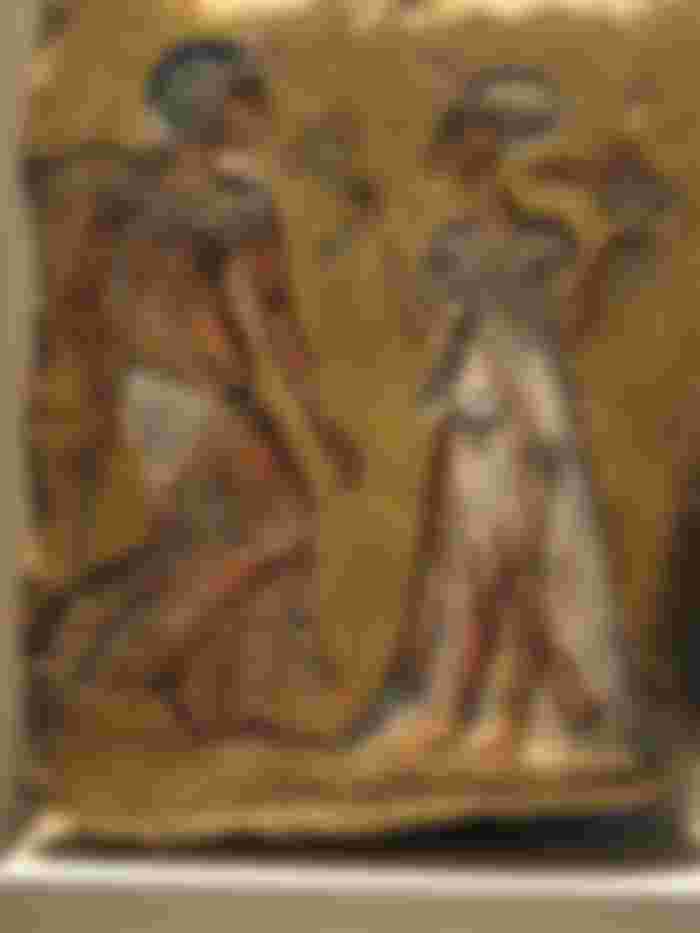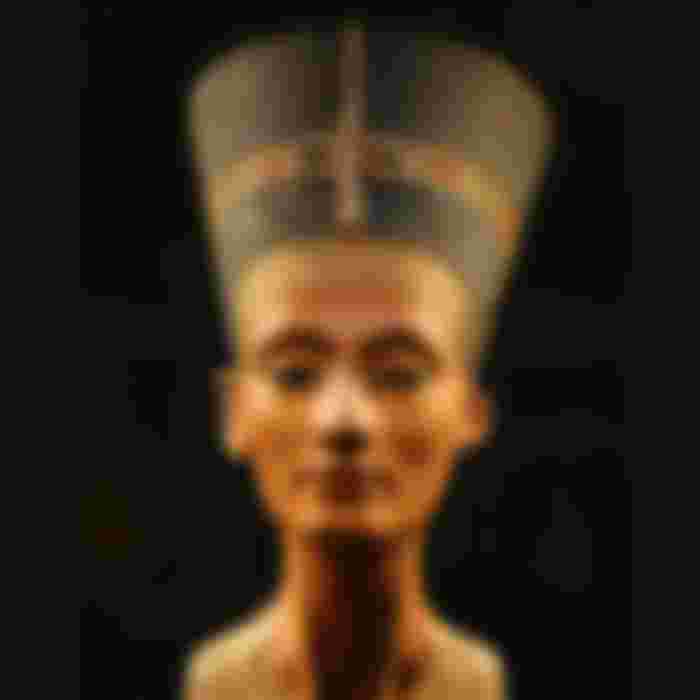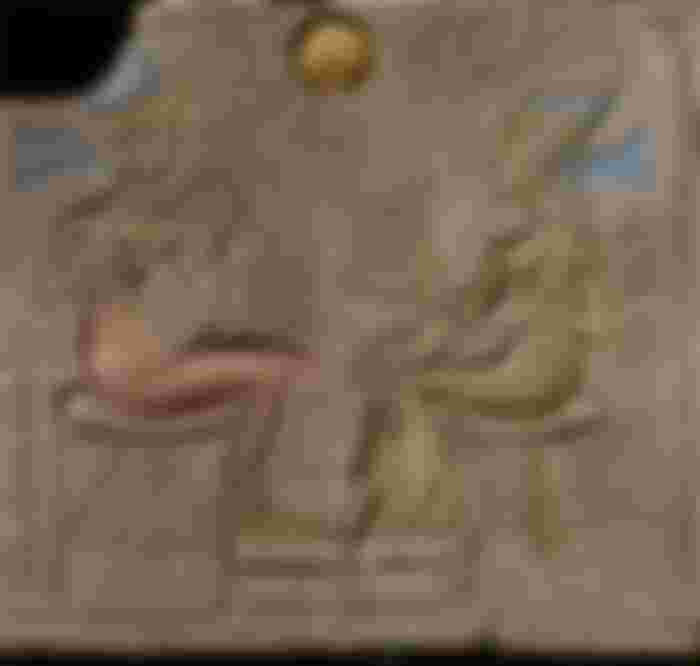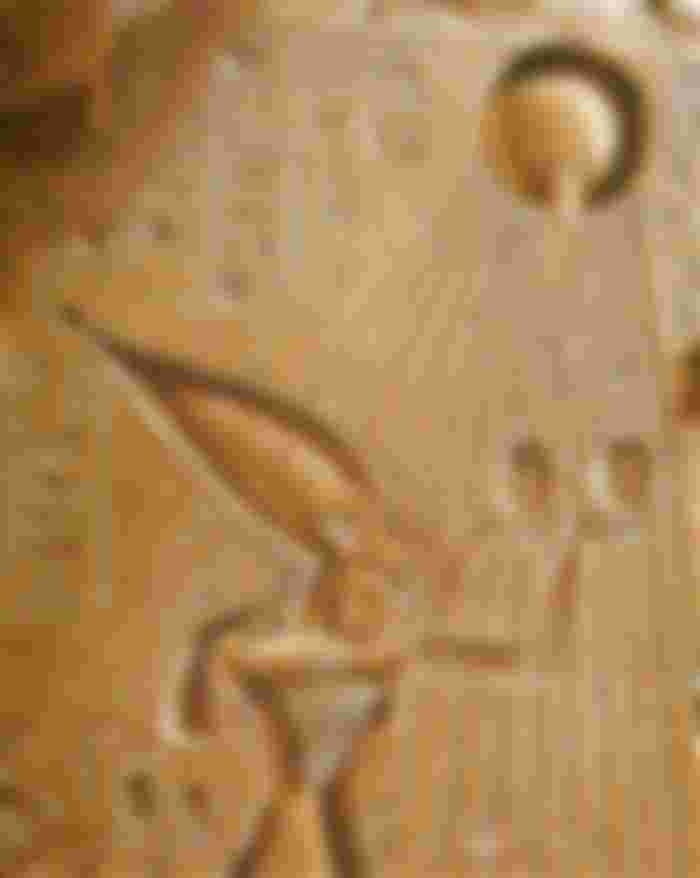Snezana28 9.11.2020.
Dear virtual friends! Without the Sun, there would be no breath, no momentum on Earth. That is why I share this story.

Egypt, year 1280 BC, Middle Kingdom…
When Amenhotep III died, his minor son Amenhotep IV became heir to the throne, who was replaced by Thea - the black eminence of the court - and Horenheb, the commander of the army and Thea's lover. These governors of Egypt were known for their intrigues, but also for their aspirations to the Egyptian throne.

However, according to the tradition of Egypt, when Amenhotep IV came of age, he was supposed to get married and sit on the throne. The young pharaoh, therefore, needed to find a wife. The decision was made to be a princess from the vassal state of Mitani, because according to tradition, all pharaohs married white women from that small country.

Then, for Mitani, along with a caravan with rich gifts, a large delegation was sent to beg a woman from the royal house for Amenhotep IV. After four months, an agreement was reached asking for a beautiful sixteen-year-old princess named Tadukhepu. However, before she came to Thebes, the news of her miraculous beauty spread like wildfire in Egypt, and since then everyone will forever call her Nöfret, or "Beauty to Come", better known to us as Nefertiti.

When Nefertiti finally arrived in Thebes, the wedding ceremony was performed, and the celebration, throughout Egypt, lasted a full month. However, no one hoped that this young and beautiful couple would fall in love with each other. Traces of that love, which is only read in books, we found in paintings and bas-reliefs in Egypt.
Thus, in one mosaic painting, we see this married couple sitting in love on a throne, with children playing around their legs. Pharaoh Amenhotep IV and Nefertiti had six daughters, but only two are important to us - Meritaton and Beketaton.

In the second picture we see this couple walking hugged along the walls and watching the sunset.
On the third frieze, we see them standing on the bridge and throwing bows at the excited people, who adored them.

It was an incredible love, which is rarely found in the history of mankind. Then Amenhotep had a fabulous sarcophagus carved for his Nefertiti, which the pharaohs had built during his lifetime, and only one word was engraved on it: Kija, which in the Coptic language means Ljubimica! After that, Amenhotep wrote a poem for Nefertiti, which, 1650 years later, would be stolen by the Jews and attributed to Solomon. Since Amenhotep and Nefertiti were the first to introduce the rose into the history of mankind as a symbol of faith in love, it will not be a coincidence that the "Song of Songs" contains these very words:

"Are you beautiful, my dear, are you beautiful?"
like a rose of Saron… “
Saron is a place in Egypt. Then Amenhotep IV and Nefertiti undertook the most grandiose endeavor ever seen in the history of Egypt. Amenhotep decided to build the largest city in the world for Nefertiti, whose gigantic construction began relatively far from You.
The city was built for ten years, and the world's most famous masters, artists and stonemasons participated in the work. Amenhotep called it Akhenaten, which means "City of the Sun". It stretched over an area of ten kilometers, with perfect urban construction and countless fountains, parks, flower alleys and stone ornaments.
When it was completed, Amenhotep and Nefertiti moved to Akhenaten and declared it the capital of Egypt. The city could accommodate over a million people and so inhabited it was truly the capital of the world.

Overnight, Amenhotep closed all the temples in Egypt, dissolved the priesthood, abolished the old gods, and introduced the cult of the god Aten, which was not a previous belief in the Sun, but in its energy!
This was also pointed out by the famous "Hymn to Aton", which has been completely preserved and written by Amenhotep himself. Then he changed his name to Akhenaten, which means "Beloved of the Sun God".
However, abolishing the ancient gods, who ruled Egypt for thousands of years, was tantamount to suicide. Although Akhenaten had followers (one of them would be Moses), the clergy and the people were astonished by this reversal and their resistance to Pharaoh's reforms was terrible. The clergy throughout Egypt provoked the people, bringing defeatism and superstitious fears into them.

Why did Akhenaten and Nefertiti do this?
Behind all this was Nefertiti, who had a decisive influence on Akhenaten. This is all the more so because in the state of Mitani, where Nefertiti grew up, the cult of the Sun was respected. In addition, Sinuhe the Egyptian, who left us records about the life of Akhenaten and Nefertiti, writes that they never believed in this naive and false religion of Egypt.
With this action, Akhenaten and Nefertiti drew on themselves an incomprehensible hatred of the people and the clergy, which would end in utter fatality, because it was a position from which there was no way out.
And in that equilibrium, Akhenaten suddenly fell ill with an incurable disease, which was then called "Water Disease". From its description and symptoms, we know today that the disease is caused by a virus that lives in the mud of the Nile, known as Protosophe salnacia. According to historians, this was sponsored by Teja and Horenheb, who, through food, planted the virus to Akhenaten. The disease is progressive, the body is deformed, and the mind falls into stupor and convulsions.
Shortly afterwards, Akhenaten died, but the place of his burial is still unknown today.
And that was the beginning of the end...

Hymn to the Sun.
"Your radiance is beautiful on the celestial horizon, you living Sun that you first lived. When you rise on the eastern horizon, then you shower the whole Earth with your beauty ... Your rays encompass the whole world and everything you have created ... Darkness flees when you spread your rays, the world rejoices, people wake up and rise, because you raised them, they wash their bodies, put on their clothes, and raise their hands in prayer when you are born, herds rest on pasture, trees and plants green, the hens hatch from their nests, and their wings glorify you ... You, the Sun, created the seasons, the winter cold and the summer heat. You created the distant sky, to shine on it and see everything you have created ".

Today, after 3300 years, we, naturalists, speak about the Sun, in almost the same language and with the same admiration as that enlightened pharaoh. The sun preserved, intact, its dignity during the turbulent centuries, which saw the death of many other deities. Milutin Milanković













I really like the history of Egypt